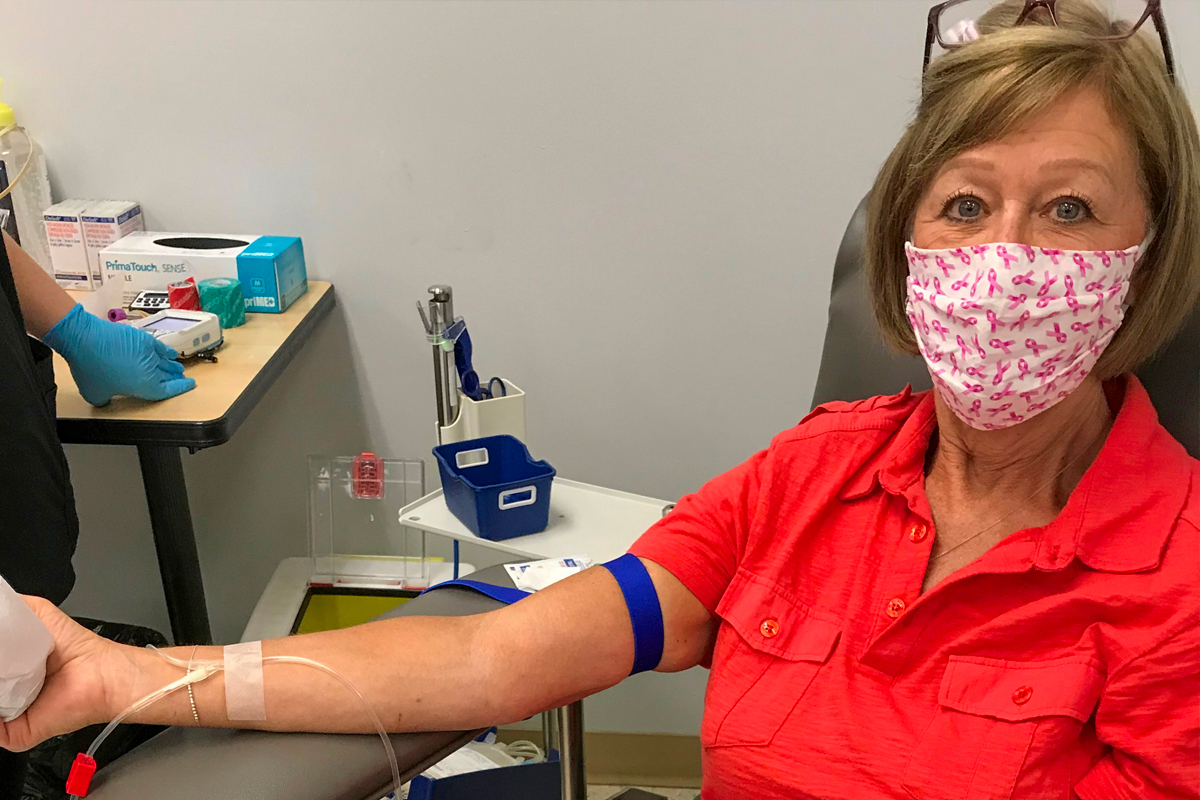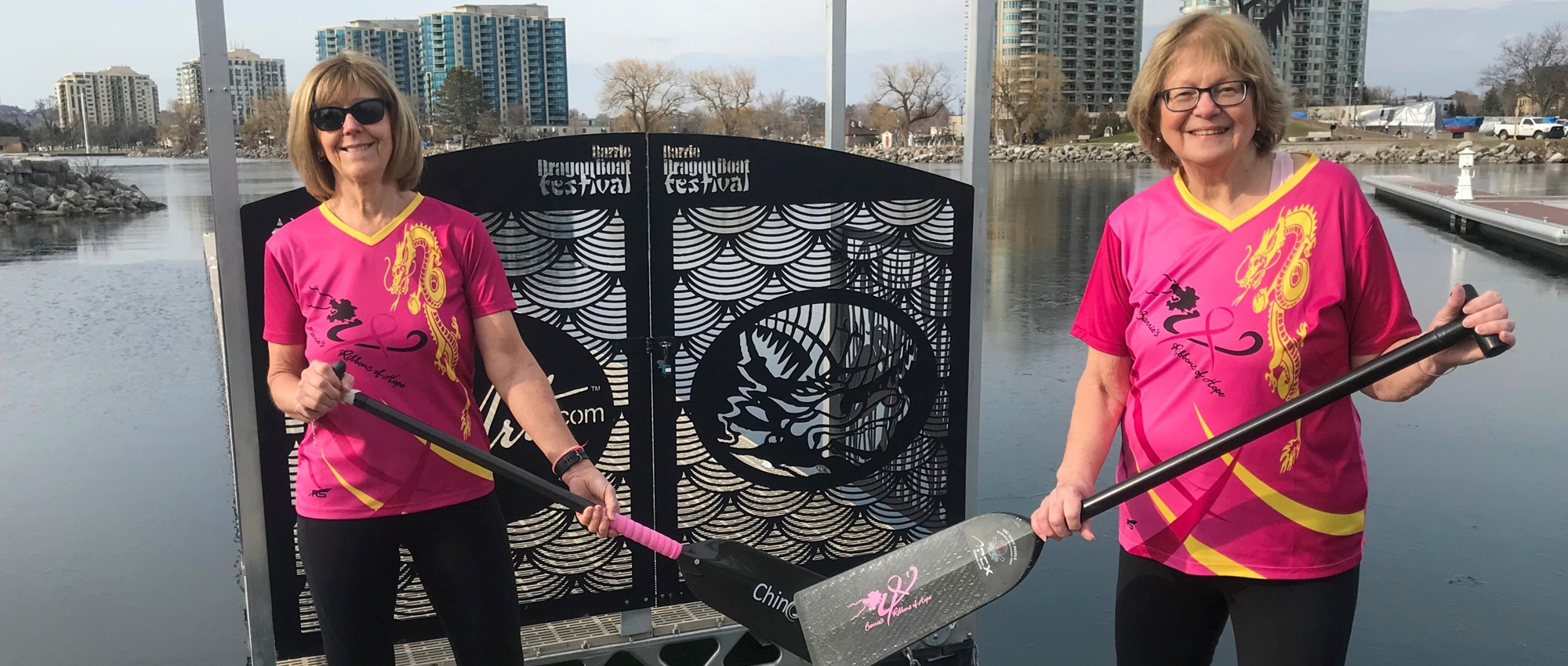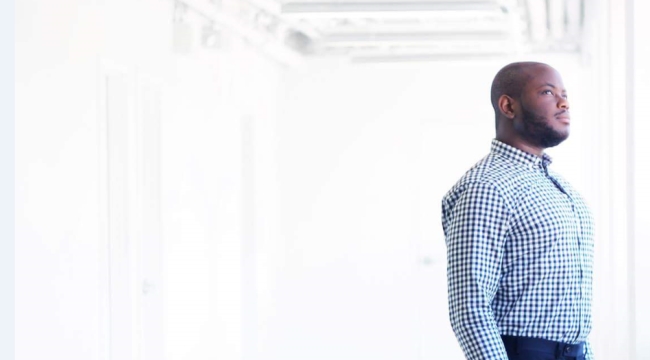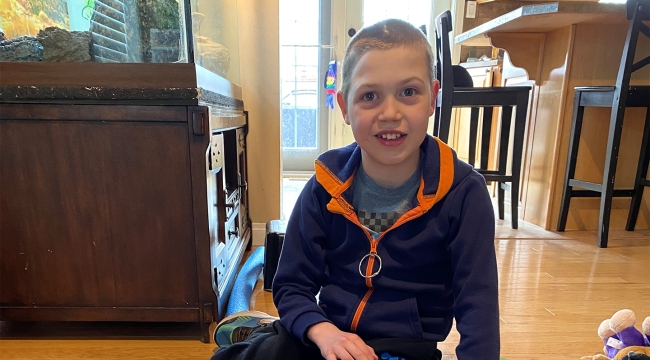Dragon boat teammates donate blood after cancer recovery
These breast cancer survivors could be helping new patients, given the role of blood components in cancer treatment
Vonnie Pope, left, and Donna Jelly, right, are blood donors and members of a dragon boat team in Barrie, Ont., which is made up of breast cancer survivors.
Some dragon boat teammates who have supported each other through the struggles and triumphs of breast cancer and its aftermath are now pulling together for patients.
The five women are all part of Barrie’s Ribbons of Hope, a dragon boat team made up of breast cancer survivors. On April 14, they’re all heading to Canadian Blood Services’ donor centre in Barrie, Ont. to donate blood.
For organizer Vonnie Pope, it will be her third visit since she resumed donating blood last October. As of 2016, donors with a history of most cancers are eligible to give blood after they have been cancer-free for five years. And even amid a pandemic, Vonnie was determined to mark that milestone at the donor centre.

Last fall, Vonnie Pope became eligible to donate blood after cancer recovery and made an appointment in Barrie, Ont. She was diagnosed with breast cancer in 2014 but has been cancer-free for more than five years.
“It was amazing,” says Vonnie, a mother of four and grandmother of eight. “That was such a happy day for me.”
Donations by Vonnie and her teammates could very well help people currently fighting cancer. That’s because there’s an important role for blood components in cancer treatment. Some patients require red blood cell transfusions because of internal bleeding caused by their cancer. Chemotherapy and radiation can also damage the cells in the bone marrow ― the body’s blood cell factory ― reducing levels of red blood cells and platelets, necessitating transfusions. And some cancers, such as leukemia and myeloma, start in the bone marrow itself.
The amazing journey of donated blood
Learn about your blood type and how it can help patients
Years of giving began for ‘totally the wrong reason’
Vonnie jokes that her very first blood donation many years ago were for “totally the wrong reason”: her boss gave her time off work to donate in downtown Toronto.
“I would go because I wanted to have a two-hour lunch and be with everybody in the office,” she says. “We would go at every opportunity we could.”
But the habit stuck. After she had children, she brought them to appointments where they occupied themselves with crayons and paper while she donated. By the time she was diagnosed with breast cancer in 2014, Vonnie had donated blood more than 90 times and was looking forward to hitting 100. So she was devastated to learn that cancer would steal that opportunity. At the time, the changes to eligibility requirements ― including the removal of the upper age limit for donating blood ― had not yet been made.
“I was told my file would have to be retired, and I wouldn’t be able to donate ever again,” she recalls.
Some months later, however, Vonnie became a member of Barrie’s Ribbons of Hope while going through cancer treatment. And at one of the team’s get-togethers, founding member Donna Jelly delivered the exciting news that many cancer survivors were newly eligible to donate.
“Everybody listened to me, but Vonnie got excited,” recalls Donna, a long-time Canadian Blood Services volunteer who will donate with Vonnie and their teammates on Apr. 14. “She said, ‘As soon as I’ve got my five years, I am doing this.’”
‘There is life after breast cancer’
Those five years only strengthened Vonnie’s resolve to help patients. In 2015, her daughter was diagnosed with lymphoma and required blood transfusions as part of her successful treatment.
“I knew the importance of blood donation prior to that, but I think that’s when it hit home,” says Vonnie. “I just know somebody spent their time to give her something that her body needed desperately. I’m grateful that it was there and ready for her.”
Vonnie and her teammates are constantly reminded of the needs of patients and the fragility of life. The team lost two of its founders in its very first year, says Donna. And in many years since, cancer has taken another teammate. Last November, it was one of Vonnie’s dear friends, a woman whose cancer journey began around the same time as her own.
But these women also gain hope and strength from their connection. Because of the pandemic, they haven’t been able to practice and compete. But in late March, some of them gathered on Zoom with Dr. Don McKenzie, the doctor who pioneered dragon boating for breast cancer survivors. And virtually, they raised a glass to this 25-year-old Canadian tradition that has spread around the world.
For Donna, the life-affirming act of donating blood is one of the ways they can express their purpose as a team of survivors.
“It’s part of our mission to go out and show the world that there is life after breast cancer,” says Donna.
And with life comes new goals to strive toward. At the end of each blood donation appointment, Vonnie books her next one for three months later, in pursuit of that 100th donation she once thought she’d never reach. Now she expects to hit that milestone in early 2023 ― when the pandemic is over and the team can once again be free to gather on the water and anywhere else they choose.
“Then we’ll have a big celebration, because we can,” says Vonnie.
Many people are eligible to donate blood after cancer recovery, once they have been cancer-free for five years. And by doing so, survivors may help new patients because of the importance of blood components in cancer treatment. Learn more about eligibility on our ABCs of Eligibility page under “cancer” or call 1 888 2 DONATE (1-888-236-6283). To book, visit blood.ca/donate or download the GiveBlood app.


